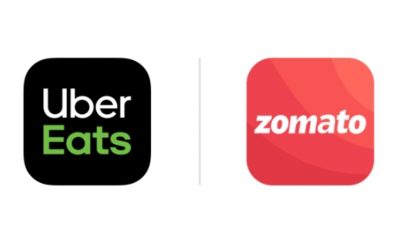With OYO layoffs, the whole matter of WeWork and SoftBank, the world of startups it seems, is seeing a shift in perspective. While getting funding and hacking growth was a huge priority for many golden startups in India, now it seems the focus has shifted to becoming profitable and watching that bottom line too. Amidst this chaos, we see news of Zomato acquiring Uber Eats, Uber’s food business in India. What does this deal mean for Zomato and Uber Eats? What repercussions does it have on the food delivery market in India? And if you have to discuss this deal during your GD-PI process, what bare minimum do you need to know to form an educated opinion? In this article, we deconstruct the Zomato - Uber Eats deal to help you with GD-PI prep.
To understand this better, let’s look at these 3 aspects in depth:
- The Facts
- Repercussions for Zomato
- Repercussions for Uber Eats
- Repercussions for the industry in general
The Facts
- 21 January 2020, Gurgaon, India: Zomato, one of the largest food apps in India, announced today that it has acquired Uber’s food delivery business in India in an all-stock transaction, which gives Uber 9.99% ownership in Zomato.
- Delivery workers working with Uber Eats will also move to Zomato, the companies said. With US cab aggregator Uber selling Uber Eats to Gurugram-based Zomato in a $350 million (Rs2,492 crore) all-stock deal, Uber Eats in India will discontinue operations and direct restaurants, delivery partners, and users of the Uber Eats apps to the Zomato platform.
Repercussions For Zomato
- The all-stock deal allows Zomato to add Uber as a new investor to its shareholder roster as it battles Swiggy.
- Zomato has, over the last 3 years been locked in a battle for dominance with Swiggy, with Uber Eats taking a small part of the pie. Now, with the acquisition, the company seems to have bridged the gap towards becoming number 1.
- It’s a well-known fact that Zomato and Swiggy spent close to 60 Million USD every month on discounts, marketing costs and other expenses, at least in the first half of 2019. Having to cut costs, they finally dialled down these expenses. Zomato now burns closer to $20 million a month, Mint reported in October. This deal with Uber Eats could help Zomato cut costs further.
Repercussions For Uber
- Uber Eats has failed to make a dent in the food supply market dominated by Swiggy and Zomato, despite spending millions of dollars. UberEats had been looking for a buyer for at least a year and Zomato's offer is basically a sale of distress.
- Uber's shares fell by more than 16 per cent since it went public last May in the US. Uber is still a loss-making company. The disappointing IPO has increased pressure on Chief Executive Dara Khosrowshahi to reduce costs, especially in the food supply sector. This deal will help the company by adding a potentially large food discovery and delivery platform from India on its roster, thus making sure that Uber still has a piece of the pie.
Repercussions For The Industry - Final Thoughts
Although the takeover of Uber Eats will not dramatically increase Zomato's market share, Uber's presence as a shareholder may prove useful over the coming years, especially as it seems funding may be drying up for internet startups. In fact, this deal is also a reminder to companies that sometimes expansion or growth in a new geography is as simple as making a partnership with a local player.
Meanwhile, the food delivery market in India may be reaching the maturity stage, now that Swiggy and Zomato have the reigns. Interestingly, experts observe how, when a market reaches maturity, we often see a duopoly. Countering this though is the fact that Amazon too has eyes set on India, and there are talks about the company being interested in the food delivery sector in India too.
When answering questions during GDs, PIs, etc, the things to keep in mind, apart from the bare bones of the case, include various factors like the market conditions, legal aspects and the number of players involved.
Complement your reading about the Zomato-Uber deal with information on food delivery players’ opportunity of testing out cloud kitchens, like Rebel Foods does with Faasos and assorted brands. Check out Ola’s cloud kitchen logic too. Also, read about restaurants’ tiff with Zomato on Zomato Gold.
Sources:
Welcoming Uber Eats India users and partners to Zomato
Food fight set to heat up as Zomato buys Uber Eats in India
India’s food-delivery startups are back in business, but there’s still reason to worry
Info Edge India's Sanjeev Bikhchandani on Zomato-UberEats $350 mn deal
***
Recommended Current Affairs topics for your MBA Interview Preparation!
Coronavirus And Its Impact On Global Economy
Budget 2020 Analysis
Citizenship Amendment Act (CAA)
The US-China Trade War Explained
Iran USA Conflict
Article 370 And Article 35A
Venezuela's Oily Hyperinflation Story
Why Should India Be Friends With Its Neighbours?
All You Need To Know About Air India
Opting Out Of RCEP - Does India Need To Rethink Its Decision?


